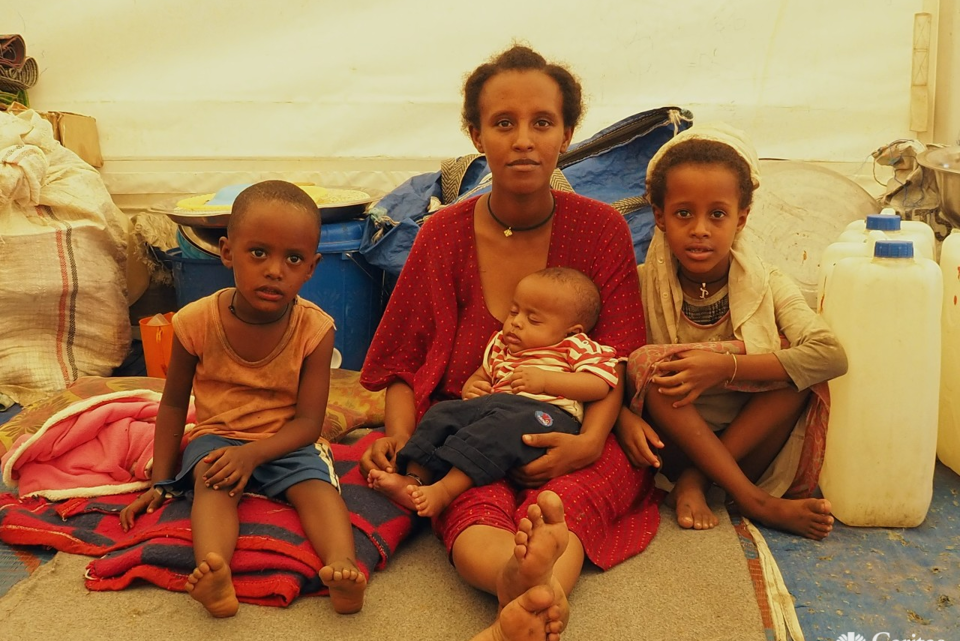Global Issues
Help Fight Hunger in Ethiopia
Drought and conflict in Ethiopia have left millions of people in urgent need of humanitarian aid.

Ayoyo is a volunteer complaints officer who supports her community in southern Ethiopia. Photo: Zacharias Abubeker/Caritas Australia

Woman with her family in an IDP camp in northern Ethiopia. Photo: Caritas Australia.
According to the World Food Programme:
20.4 million people need food assistance
4.5 million people are internally displaced due to conflict and drought
Bute’s story
Bute is a village elder living in southern Ethiopia with his wife, Burre. Bute was elected by his community members to represent their voices. They have a story they want to share with the rest of the world: they need urgent humanitarian aid now.
Bute and Burre have experienced many droughts, but this one is by far the worst they have seen in their lifetime.
Before the current drought, the couple had 2,000 livestock in two stables, including donkeys, goats and cows. The grass was green and there was plenty of pasture for their livestock. They used to harvest sorghum and maize, with enough water from the nearby river to irrigate their crops.

Bute, a village elder living in southern Ethiopia. Photo: Zacharias Abubeker/Caritas Australia
“We used to have lots of milk and meat to eat, and now we have almost nothing. We feel very sad and frustrated. The life we used to live and enjoy is completely gone.”

You can help fight hunger in Ethiopia
Caritas Australia is working with our partner Caritas Ethiopia to provide urgent food and trucking emergency water to the most drought-affected communities in Ethiopia. With no sign of the drought easing, many people in Bute’s community will be heavily reliant on humanitarian aid for survival in coming months.
Our partners on the ground are working to support vulnerable communities in Ethiopia through:
Emergency food rations
Clean water to vulnerable communities
Urgent cash assistance
The Africa Food Crisis is threatening to push millions onto the brink of famine. Across eastern Africa, over 81.6 million people are facing high acute food insecurity in countries such as Ethiopia, Kenya and Somalia.
Where does my donation go?
The funds you donate to this appeal go to Caritas Australia’s Emergency Response Fund and will be used to provide humanitarian assistance to communities affected by this crisis. Should circumstances prevent us from delivering aid to this emergency, or if excess funds remain after the crisis, donations will be directed to other emergencies where Caritas has humanitarian operations.

Caritas Australia CEO Kirsty Robertson visits an IDP camp in northern Ethiopia. Photo: Richard Landels/Caritas Australia.












